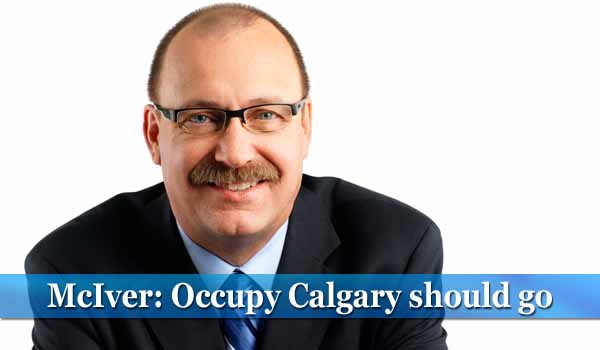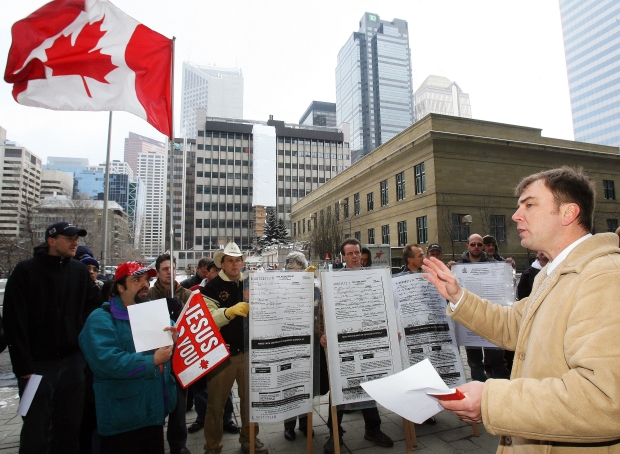A bureaucratic, political and court addiction to speech suppression
| Calgary Herald |
One bizarre reality about Canada’s new national sport — open season on free expression — is that the type of expression to which sensible people would object is allowed, while other varieties that should be well-protected, are injured.
On the injury front, the Alberta Human Rights and Citizenship Commission recently ordered Red Deer’s Rev. Stephen Boissoin to forever cease saying anything "disparaging" about gay folk, this after a well-publicized complaint to the commission several years ago.
Over in British Columbia, the local Star Chamber is "investigating" whether Mark Steyn’s book, America Alone, constitutes hate speech against Muslims. Steyn repeated a claim by some Muslims that they wanted to take over the world (to which I say: get in line).
Imagine if B.C.’s kangaroo court declares Steyn guilty. (Ontario’s version tried, but didn’t have the legal authority.) We might then have the spectacle of two human rights bodies in cosmic collision.
If you’re a Muslim in Alberta, think homosexuality is a sin and say so publicly in a mosque, you could face Boissoin’s fate.
Or suppose Alberta complainant Darren Lund (who got Boissoin into trouble) steps into B.C. and says something untoward about Muslims and their attitudes on homosexuality. Then Islamic complainants in Alberta might file a complaint in B.C. and have Lund found guilty of hate speech there.
See how much fun restrictions on expression can be once the whack-a-thought police get going? It’s an endless merry-go-round.
But the whack-an-open-thought, whack-a-fellow-Canadian game doesn’t stop there.
Three provincial legislatures have either passed or plan to pass bills to restrict political speech. The first was in British Columbia. Gordon Campbell’s Liberals passed a law to prevent "third parties" from spending more than $3,000 per riding during the 60-day-period before an election.
Manitoba’s NDP government will soon tighten existing legislation. In election years, their Bill 37 would restrict party advertising outside of the 33-day writ period to $150,000. That’s designed to hamper the opposition Conservatives, better at fundraising.
And still on Manitoba’s books from 2000 is a $5,000 election-time cap on so-called "third parties," i.e., anyone who has an interest in the outcome (voters, for example), but doesn’t care to play political ball through the parties. That section was never proclaimed because only New Democrat allies like unions have ever spent serious money on advertising. But if the business community gets uppity, look for that section to be proclaimed.
Meanwhile, Alberta’s government has signalled it, too, will restrict "third parties" during elections, probably with a thump-on-talk bill this autumn. Bureaucrats in Ontario, B.C. and Alberta; Liberals in B.C., New Democrats in Manitoba, and Conservatives in Alberta: Think of it as an all-party attack on citizens and their vocal cords.
So where are the courts in all of this folly? Regrettably, of not much help. In a 2004 Supreme Court of Canada decision involving a case between the National Citizens Coalition and the federal government and its 1997 gag law, six justices allowed the federal government’s restrictive legislation to stand.
That majority opinion meant that gag laws found constitutional protection. (I assume Stephen Harper, president of the National Citizens Coalition when the court case began, will scrap the federal gag law when he gets a majority government.) The low provincial spending limits for everyone except political parties guarantee that communication with fellow citizens is impossible in any practical sense. If you doubt that, try and get the attention of 4.4 million people in British Columbia, 1.2 million citizens in Manitoba, and 3.5 million people in Alberta. That will take money and advertising, lots of it.
Power-drugged bureaucrats, university professors, politicians, and the others involved in this melee have an insufficient appreciation for what Aristotle thought separates us from the other animals — speech. Meanwhile, while speech police create our theatre of the absurd, one "expression," which should be justifiably infringed upon is allowed: self-created child pornography.
In 2001, in a case involving Vancouverite John Sharpe, the Supreme Court of Canada ruled Canadians can possess self-created child pornography, i.e., drawings or paintings of children, but not real images, so long as one doesn’t distribute the material.
Welcome to Canada. You can create visual depictions of children in a pornographic manner for personal use; that "expression" is protected.
But sentiment of a religious or political nature is restricted because AWOL bureaucrats, politicians and some justices are worried about the effects of expression, including that which might result from advertising.
Mark Milke is the Frontier Centre’s senior fellow in Alberta.
His column appears every Sunday.


